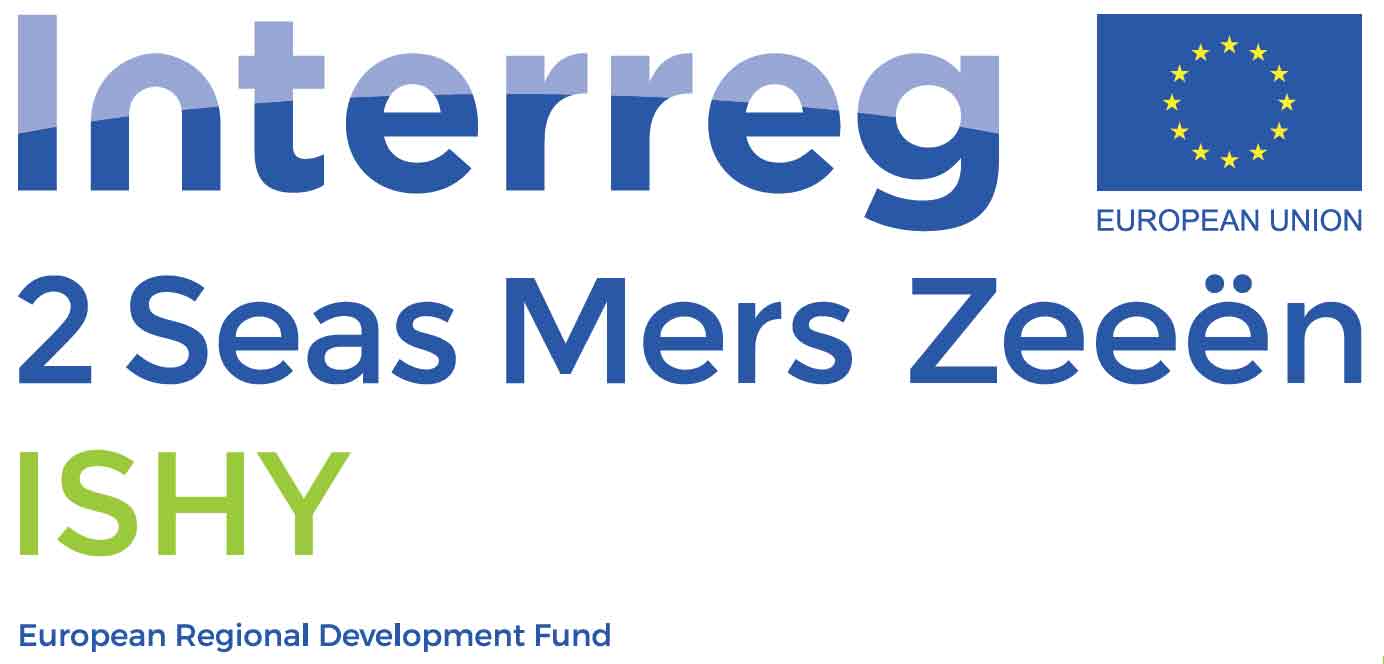Implementation of Ship HYbridisation (ISHY) 2S06-015.

This Interreg 2 Seas project ISHY has started on 01/02/2019 with 15 partners and 45 observer partners across Europe and will continue till 30/06/2022 approved under the Interreg 2 Seas Programme priority '2. Low carbon technologies' with specific objective 'SO 2.1 Increase the adoption of low-carbon technologies and applications in sectors that have the potential for a high reduction in greenhouse gas emissions'. The overall budget for this collaborative project is €15.98M with a maximum European Regional Development Fund (ERDF) of €8.8M.
Objective:
Development, testing and validation of technical tools and socio-economic models (business cases) for the implementation of hybrid and hydrogen fuel cell technologies in vessels and ports, and realising the development and the demonstration of the feasibility of these technologies by retrofitting different types of existing vessels, different kind of new built vessels and new bunkering facilities in ports in order to increase the adoption likelihood of this low or zero carbon technology in a sector with high impact potential.
Project outputs:
- Developed and built new multimode hybrid configuration in a small inspection craft
- Designed and built transfer vessel and retrofitted barge with a hybrid (diesel-electric and H2) propulsion system
- Designed and built of new (400-)passenger transport vessel with a full H2 based propulsion system
- Designed and built of a removable fuel cell pack to be used in various vessels
- Designed and realised H2-bunkering station for vessels in the port of Ostend
- Method to retrofit small craft vessels which adapting automotive design and control experience
- Business cases/models for transformations regarding: retrofitting existing vessels, new built H2-fuel cell vessels, wireless recharging systems, use/storage of H2
- Supporting tool for certification and insuring of all kind of hybrid and hydrogen vessels and fuel bunkering facilities
- Overall report of tests and monitoring in real life circumstances of all retrofitted and new built vessels using hybrid and H2 propulsion systems
Partners:
Classification Societies:
- Lloyd's Register, UK
Industries:
- AG Port of Oostende, Belgium
- Economical Impulse Zeeland, Netherlands
- Hydrogen Net, Belgium
- Cruise company Zilvermeeuw BV, Netherlands
- GEO Aqua, Belgium
- Yerseke Engine Services, Netherlands
- Hybrid Marine Ltd, UK
- Zepp Solutions, Netherlands
- Vera Cruz Shipping bvba, Belgium
- Parkwind, Belgium
Universities, Research and Technology Centres:
- Delft University of Technology, Netherlands
- Polytechnical University Hauts-de-France, France
- Solent University, UK
- Vives University of applied sciences, Belgium





